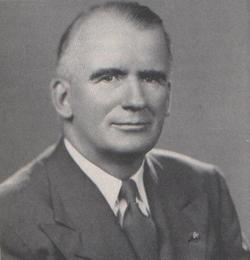New Source Performance Standards (NSPS) are pollution control standards issued by the United States Environmental Protection Agency (EPA). The term is used in the Clean Air Act Extension of 1970 (CAA) to refer to air pollution emission standards, and in the Clean Water Act (CWA) referring to standards for water pollution discharges of industrial wastewater to surface waters.

The Energy Policy and Conservation Act of 1975 (EPCA) is a United States Act of Congress that responded to the 1973 oil crisis by creating a comprehensive approach to federal energy policy. The primary goals of EPCA are to increase energy production and supply, reduce energy demand, provide energy efficiency, and give the executive branch additional powers to respond to disruptions in energy supply. Most notably, EPCA established the Strategic Petroleum Reserve, the Energy Conservation Program for Consumer Products, and Corporate Average Fuel Economy regulations.

The Ministry of Petroleum (MOP) (Persian: وزارت نفت Vezârat-e Naft) manages the oil industry, the producer of oil and petrochemical products. MoP is in charge of all issues pertaining to exploration, extraction, exploitation, distribution and exportation of crude oil and oil products. In addition, according to the "Imports and Exports Regulation Act", issuing import licenses for such products is also among the functions of the Ministry of Petroleum. According to BP, Iran's has 137.6 billion barrels (2.188×1010 m3) of proven oil reserves and 29.61 trillion cubic meters of proven gas reserves. Iran ranks third in the world in oil reserves and second in gas reserves. It is responsible for applying the principle of Iranian ownership and sovereignty over oil and gas reserves. Also, it is undertake the separation of sovereignty tasks from management and development of country's oil and gas industry.

Energy security is the association between national security and the availability of natural resources for energy consumption. Access to (relatively) cheap energy has become essential to the functioning of modern economies. However, the uneven distribution of energy supplies among countries has led to significant vulnerabilities. International energy relations have contributed to the globalization of the world leading to energy security and energy vulnerability at the same time.

The Ministry of Petroleum and Natural Gas (MOP&NG) is a ministry of the Government of India. It is responsible for the exploration, production, refining, distribution, marketing, import, export, and conservation of petroleum, natural gas, petroleum products, and liquefied natural gas in India.
The Connally Hot Oil Act of 1935 was enacted in the wake of the Supreme Court's decision to strike down Section 9 (c) of the National Industrial Recovery Act (NIRA) in Panama Refining Co. v. Ryan. The act gave the President authority "to prohibit the transportation in interstate and foreign commerce of petroleum... produced or withdrawn from storage in excess of the amount permitted... by any State law." The act was named after Senator Tom Connally.

Samuel Barrett Pettengill was a U.S. Representative from Indiana, representing Indiana's 3rd congressional district and nephew of William Horace Clagett.

Petroleum in the United States has been a major industry since shortly after the oil discovery in the Oil Creek area of Titusville, Pennsylvania in 1859. The industry includes exploration, production, processing (refining), transportation, and marketing of natural gas and petroleum products. As of 2019, the United States is the world's largest oil producer. The leading oil-producing area in the United States in 2019 was Texas, followed by the offshore federal zone of the Gulf of Mexico, North Dakota and New Mexico.
Phillips Petroleum Co. v. Wisconsin, 347 U.S. 672 (1954), was a case decided by the Supreme Court of the United States holding that sale of natural gas at the wellhead was subject to regulation under the Natural Gas Act. Prior to this case, independent producers sold natural gas to interstate pipelines at unregulated prices with any subsequent sales for resale being regulated. The State of Wisconsin sought to close this regulatory loophole in order to keep consumer prices low. Natural gas producers argued that wellhead sales were exempt from federal regulation as "production and gathering." Below, the Federal Power Commission compiled an evidentiary record 10,000 pages long before deciding not to regulate wellhead sales. However, the courts reversed, and the case resulted in federal price controls on wellhead gas prices for the next 40 years.
The Federal Energy Administration (FEA) was a United States government organization created in 1974 to address the 1970s energy crisis, and specifically the 1973 oil crisis. It was merged in 1977 with the newly created United States Department of Energy.
The Union List or List-I is a list of 97 numbered items given in Seventh Schedule in the Constitution of India on which Parliament has exclusive power to legislate. The legislative section is divided into three lists: the Union List, State List and Concurrent List. Unlike the federal governments of the United States, Switzerland or Australia, residual powers remain with the Union Government, as with the Canadian federal government.

There are many exemptions for hydraulic fracturing under United States federal law: the oil and gas industries are exempt or excluded from certain sections of a number of the major federal environmental laws. These laws range from protecting clean water and air, to preventing the release of toxic substances and chemicals into the environment: the Clean Air Act, Clean Water Act, Safe Drinking Water Act, National Environmental Policy Act, Resource Conservation and Recovery Act, Emergency Planning and Community Right-to-Know Act, and the Comprehensive Environmental Response, Compensation, and Liability Act, commonly known as Superfund.
United States energy law is a function of the federal government, states, and local governments. At the federal level, it is regulated extensively through the United States Department of Energy. Every state, the Federal government, and the District of Columbia collect some motor vehicle excise taxes. Specifically, these are excise taxes on gasoline, diesel fuel, and gasohol. While many western states rely a great deal on severance taxes on oil, gas, and mineral production for revenue, most states get a relatively small amount of their revenue from such sources.
The Petroleum Authority of Uganda (PAOU), also known as the Uganda National Petroleum Authority, is governmental organisation that regulates the petroleum industry in Uganda, the third-largest economy in the East African Community. Its responsibilities include licensing, regulation, supervision of exploration, harvesting, refining, marketing, and disposal of petroleum products in the country. Although owned by the Ugandan government, it is expected to act independently.

The Petroleum Act 1998 is an Act of the Parliament of the United Kingdom which consolidated arrangements for the licensing, operation and abandonment of offshore installations and pipelines. As a consolidation Act, it did not change the substantive law, although certain Acts were amended and repealed.

Oil Pollution Act of 1924 is a United States federal statute establishing regulations for coastal navigable waters with regards to intentional fossil fuel discharges from seagoing vessels. The Act of Congress grants the Secretary of War authority to evaluate the oil volume discharge from a vessel while assessing if coastal navigable waters have a potential toxicity posing a deleterious condition for human health and seafood contamination. The 1924 United States statute provides judicial penalties encompassing civil and criminal punishment for violations of the prescribed regulations as stated in the Act.

The Petroleum and Submarine Pipe-lines Act 1975 is an Act of the Parliament of the United Kingdom which addressed the licensing, ownership, exploitation, production, transportation, processing and refining of petroleum and petroleum products in the UK. Enacted in 1975 when the UK’s first North Sea oil was produced, the Act aimed to provide greater public control of the oil industry. The Act established the British National Oil Corporation and a National Oil Account; modified the conditions of petroleum licences; controlled the construction and use of underground pipelines; and controlled the development of oil refineries.

The Fuel and Electricity (Control) Act 1973 is an Act of the Parliament of the United Kingdom which empowered the Secretary of State to control the production, supply, acquisition and use of petroleum, petroleum derived products, substances used as fuel, and electricity.

The Energy Act 1976 is an Act of the Parliament of the United Kingdom which empowered the Secretary of State to control the production, supply, acquisition and use of fuels and electricity, and included measures for the conservation of fuels.








